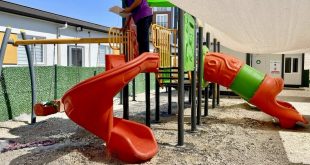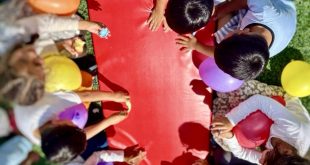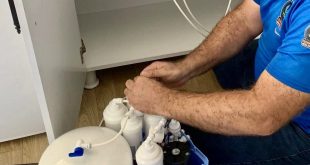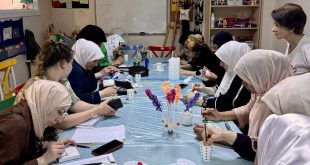We have to open a space to talk about the aggravation of gender inequality and the restriction of women’s access to rights and services in disasters and emergencies.
Mavi Kalem organized the Women in Disaster and Emergency Situations Workshop which was held on 16-17 April 2016 in Istanbul. The fact that women and children are among our target groups and that basic humanitarian aid standards in case of disasters and emergencies are our first and primary field of work, gave us room to discuss these cross-cutting situations thoroughly. In this workshop, we have intended to talk about the escalating vulnerability of women in disasters and emergencies, and to draw attention to the fact that aid efforts made without considering this situation may cause loss of rights to the detriment of women and aggravate gender inequality.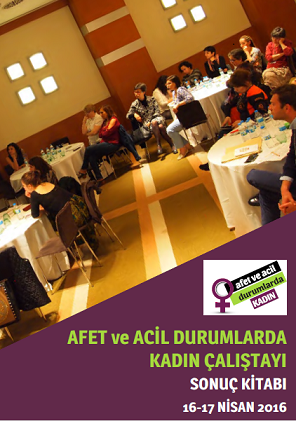
The speakers of the Women in Disaster and Emergency Situations Workshop were women representing different relief agencies and women’s organizations. This situation provided the basis of the female perspective in our study. Speakers in the first part of the workshop shared their views, experiences and suggestions on various issues:
- Women policies in terms of humanitarian aid standards
- Gender-based violence and abuse in humanitarian aid work
- Women-based violence, abuse and capacity building studies within the scope of Marmara and Van Earthquakes and Syrian asylum seekers
- The situation of men in disasters and emergencies and the scope of work for men
- Opinions, experiences and suggestions on women based approach in health services in case of disasters and emergencies were shared
In the second part, we have carried out workshops on different topics using the World Cafe method:
- Women policy in disasters and emergencies, characteristics and priorities of humanitarian aid and relief efforts
- Regulation and settlement of women’s health services in disasters and emergencies by taking into account fundamental health rights
- Responding to forced marriages of women and girls, child marriages and human trafficking in disasters and emergencies
- Increased abuse and harassment against women, violence and measures taken/can be taken in disasters and emergencies
- Vulnerability of women caused by social division of labor in disasters and emergencies
- Vulnerability of women and girls in case of disasters and emergencies, expanding social awareness and concentrating on works structured for men
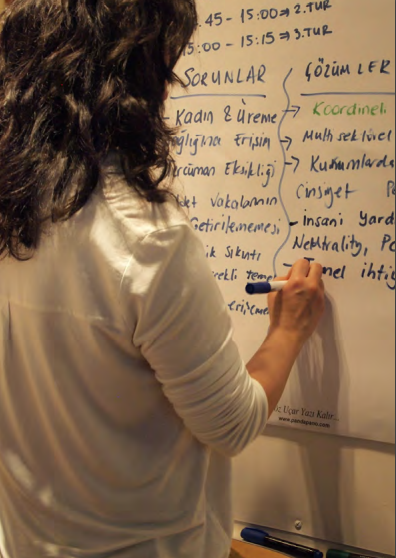
International Organizations such as AAR JAPAN (Association for Aid and Relief, Japan), IMC (International Medical Corps), IMPR (International Middle East Peace Research Center), IDEMA (International Development Management), UNFPA (United Nations Population Fund), Danish Refugee Council; Florence Nightingale Nursing Faculty, Marmara University and Eğitim Sen (Education and Science Workers’ Union) from university and education sector; Support to Life Association, Kadınlarla Dayanışma Vakfı, Mahalle Afet Gönüllüleri Acil Müdahale Ekibi, Sığınmacılar ve Göçmenlerle Dayanışma Derneği, Van Kadın Derneği, Şefkat-Der, Sınır Tanımayan Kadınlar- Göçmen Kadınlarla Dayanışma Ağı, Turkish Medical Association and social researchers among the national organizations participated in the workshop.
At the beginning of the workshop, a dossier consisting of translations of international articles on this subject was distributed to the participants. After the workshop, the presentations in the workshop and the summary of the workshop exercises were shared as printed and e-books.
Women During Covid-19 Pandemic
As of today, we are living in the second year of the Covid-19 pandemic. Once again, our agenda includes working with women and reaching women and girls under pandemic conditions. What falls to share of women in this digital world, especially today, when it comes to sharing and disseminating all sorts of information in the digital environment due to the pandemic? Can women access this digital environment, do they have sufficient access time, do they have financial means? Is there time for women to use the internet at home, access computers and mobile phones from their spouses and children? Since the Covid-19 pandemic has created a global disaster and emergency, we have reached the point where the workshop we held in 2016 should be considered together with digitalization one more time. We have to talk about the vulnerability of women, severe loss of rights, increasing domestic violence, the aggravation of gender inequality in the conditions of the pandemic and in the digitalized information and communication environment, share our experiences and put forward our suggestions regarding digitalized field studies.
 Mavi Kalem Sosyal Yardımlaşma ve Dayanışma Derneği Hayata Rengini Kat!
Mavi Kalem Sosyal Yardımlaşma ve Dayanışma Derneği Hayata Rengini Kat!


